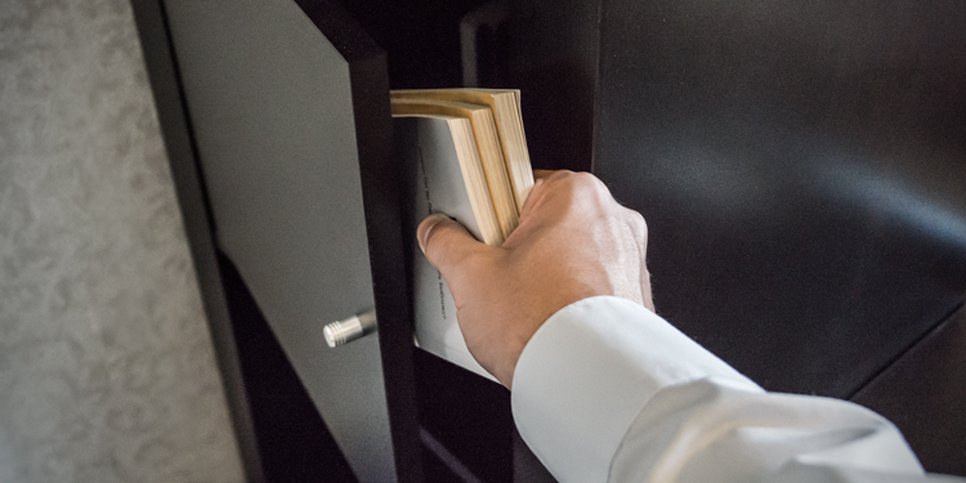New cases of planting prohibited items on believers
Stavropol Territory, Novosibirsk RegionIn April 2019, in Novosibirsk and in the resort village of Inozemtsevo (Stavropol Territory), during searches in the homes of believers, books included in the list of extremist materials were planted on them. This practice was used by law enforcement officers across the country in 2016-2017 and abruptly stopped after the decision of the Supreme Court of the Russian Federation to liquidate all communities of Jehovah's Witnesses.
On April 19, 2019, during a search in Novosibirsk, a believer noticed a book planted on him, included in the list of extremist materials.
On April 22, 2019, in Inozemtsevo, groups of law enforcement officers simultaneously invaded the workplace and house of 65-year-old Oleg Popadin. At work, a book and a digital disc were planted on him, and 5 more printed publications were planted at home to his wife. A search was also conducted in the believer's car. They seized phones and a computer hard drive. They asked questions about Jehovah's Witnesses, asked for the names of his fellow believers, tried to persuade him to cooperate, and hinted that the planted literature might or may not be used against him.
At the time of the Supreme Court decision, Jehovah's Witnesses were already aware of at least 60 plantings and falsifications. Illegal actions have repeatedly fallen into the lenses of surveillance cameras. Unscrupulous law enforcement officers, hoping to get a promotion, resort to falsifications, since there are no real violations of the law by Jehovah's Witnesses.



